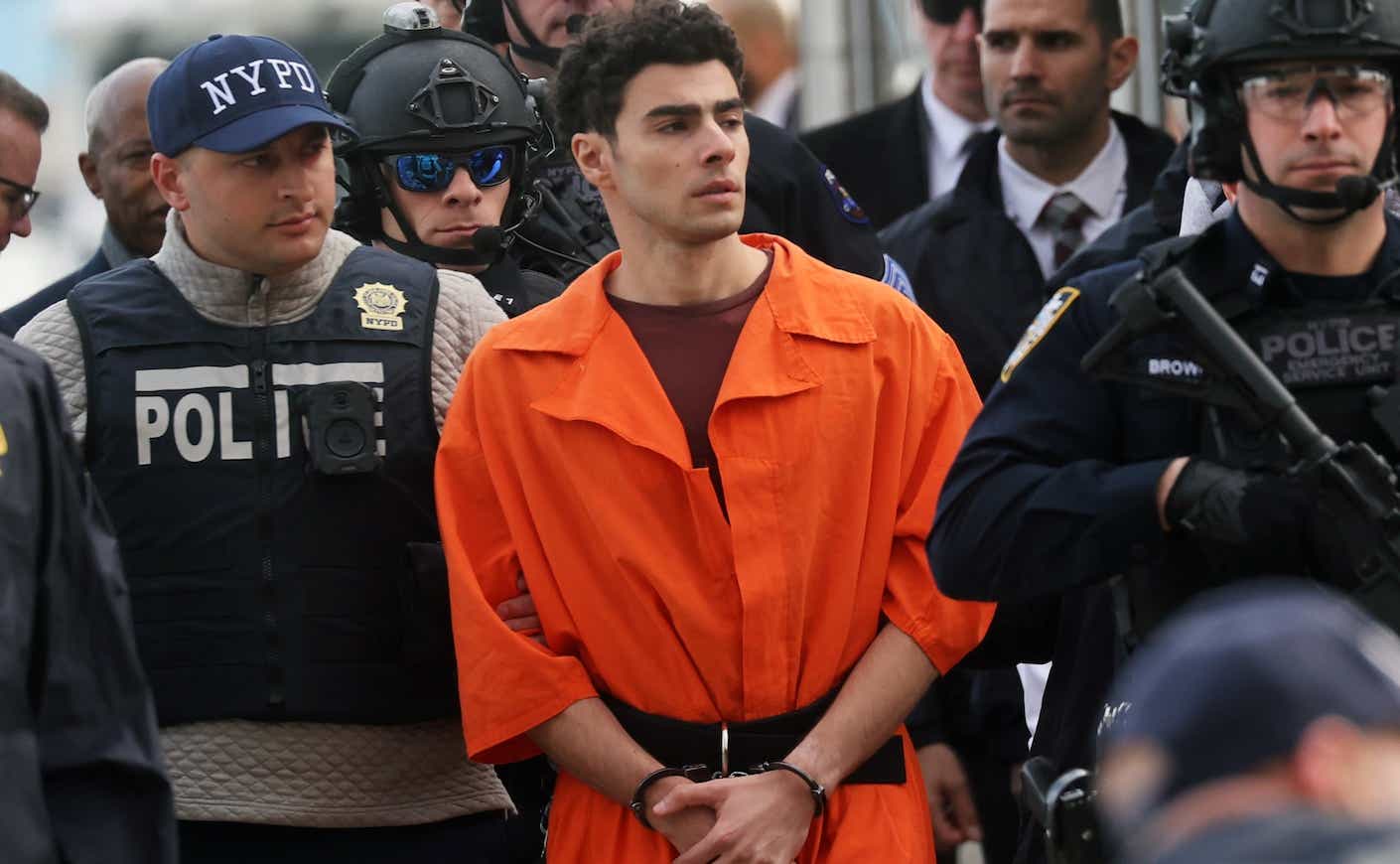Suspected shooter Luigi Mangione made a dramatic entrance for his first court appearance on Thursday after being slapped with federal charges in the death of UnitedHealthcare CEO Brian Thompson.
The 26-year-old was flown from Pennsylvania to Long Island and then brought by helicopter to New York City after waiving extradition at a hearing in Blair County Courthouse in Pennsylvania. Shortly after landing, he was escorted to the hearing flanked by New York City Mayor Eric Adams and more than a dozen law enforcement officers, some of whom were carrying automatic rifles.
Though the case is far from over, it has already sparked a fierce reaction from the public as some view him as representative of the widespread distrust in the healthcare system, a response which prosecutors have called “disturbing.”
A new poll found that 41 percent of people aged 18 to 29 think the killing of the UnitedHealthcare CEO was either "somewhat or completely acceptable,” according to an Emerson College poll. Some internet personalities, including Taylor Lorenz, have even gone so far as to celebrate Thompson’s death.
If you need to catch up, we've compiled a breakdown of what we know so far about Mangione's charges, their meaning, and what's next in his case.
What federal charges does Luigi Mangione face, and could any result in the death penalty?
Mangione, who appeared calm and composed during sentencing, faces four federal counts in connection with the death of the UnitedHealthcare CEO. According to a federal criminal complaint unsealed early Thursday, he's facing two stalking charges and a firearms offense, which could mean life in prison.
But the one that's garnering attention is the murder through the use of a firearm count, which the U.S. Attorney's Office for the Southern District of New York said could lead to the death penalty, even though it's outlawed in the state.
"The federal death penalty doesn't depend upon whether the state in which the charged crime was committed authorizes capital punishment; they're separate systems for these and most other purposes," Stephen Vladeck, who's a professor at Georgetown University Law Center, told Katie Couric Media.
The federal complaint also includes previously unreleased excerpts from the notebook that police said they seized from Mangione. Authorities said the writings "contained several handwritten pages that express hostility towards the health insurance industry and wealthy executives in particular."
What about his state charges?
Mangione also has simultaneous state charges against him.
The 11-count indictment out of New York charges him with first-degree murder, two counts of second-degree murder (one of which is charged as killing in the act of terrorism), two counts of second-degree criminal possession of a weapon, four counts of third-degree criminal possession of a weapon, one count of fourth-degree criminal possession of a weapon, and one count of second-degree criminal possession of a forged instrument.
Then, in Pennsylvania, where he was arrested following a five-day manhunt, authorities charged him with counts that included possessing an instrument of a crime, carrying a firearm without a license, and providing false identification to law enforcement.
If convicted of any of these state charges, he faces a maximum sentence of life in prison without parole.
His lawyer, Karen Friedman Agnifilo, told the Manhattan court that the overlapping federal and state cases were "confusing" and "highly unusual."
"The federal government's reported decision to pile on top of an already overcharged first-degree murder and state terror case is highly unusual and raises serious constitutional and statutory double jeopardy concerns," she said in a statement. "We are ready to fight these charges in whatever court they are brought."
But Vladeck pushed back against these claims. "'Highly unusual' is a pretty subjective standard," he says. "I'd say it's unusual for the federal government to bring its own charges for a single murder of a non-government official in a case like this, but not unheard of."
He also noted that although the Department of Justice has a policy that "disfavors simultaneous state and federal prosecutions for the same offense," it can "be overcome when there’s a significant federal interest," as seen in Mangione's case.
What's next?
Mangione will remain in New York custody as his lawyers didn't seek bail — at least for now. They did reserve the right to do so in the future, though.
His next hearing isn't until January 18, but even that is subject to change. After his initial day in court, Agnifilo passed on making a statement but said Mangione appreciated "everyone's support."
At least 100 people gathered outside the courthouse where his hearing was held to express solidarity. Fans have even set up a defense fund that surpasses $100,000 in donations, though his Pennsylvania attorney Thomas Dickey said he doesn't plan on accepting the money.
Dickey told CNN, "Obviously, my client appreciates the support that he has, but I don’t know, it just doesn’t sit right with me, really."









